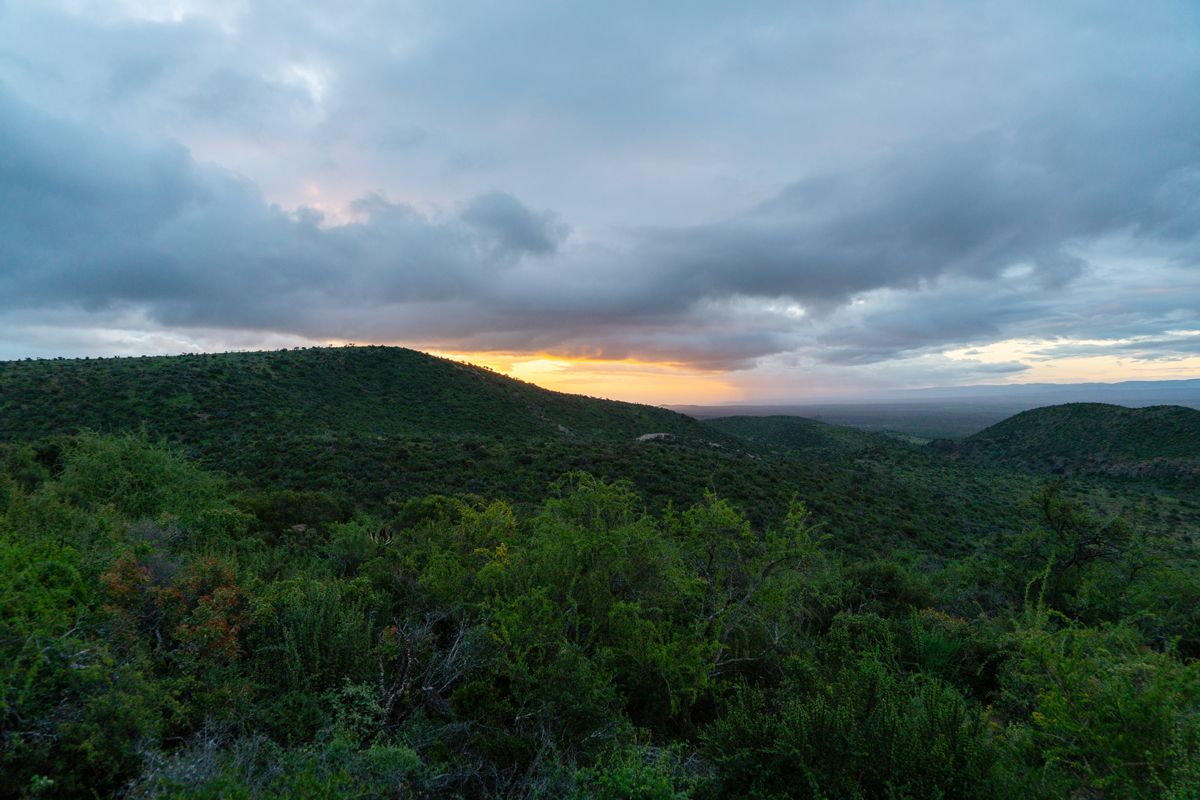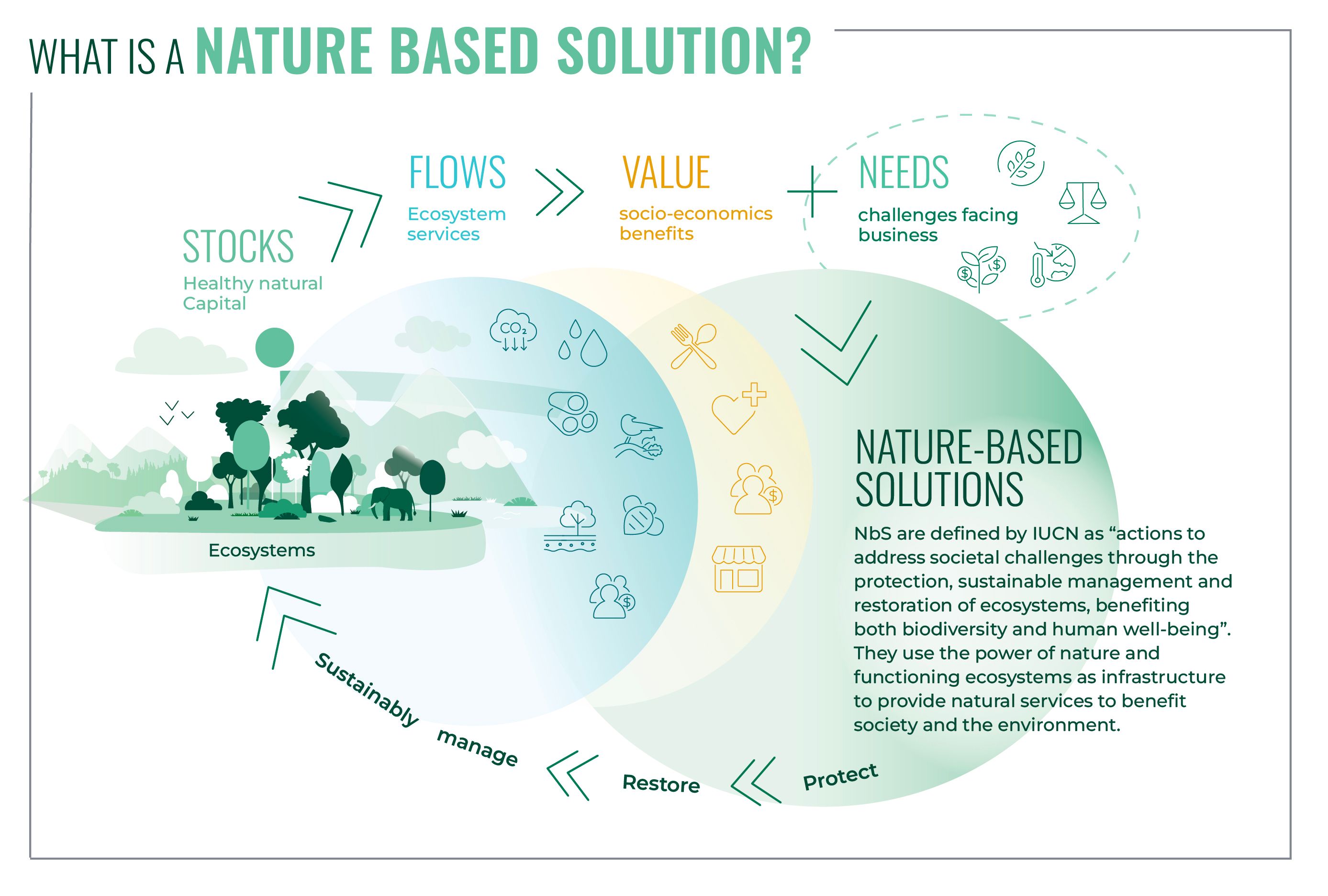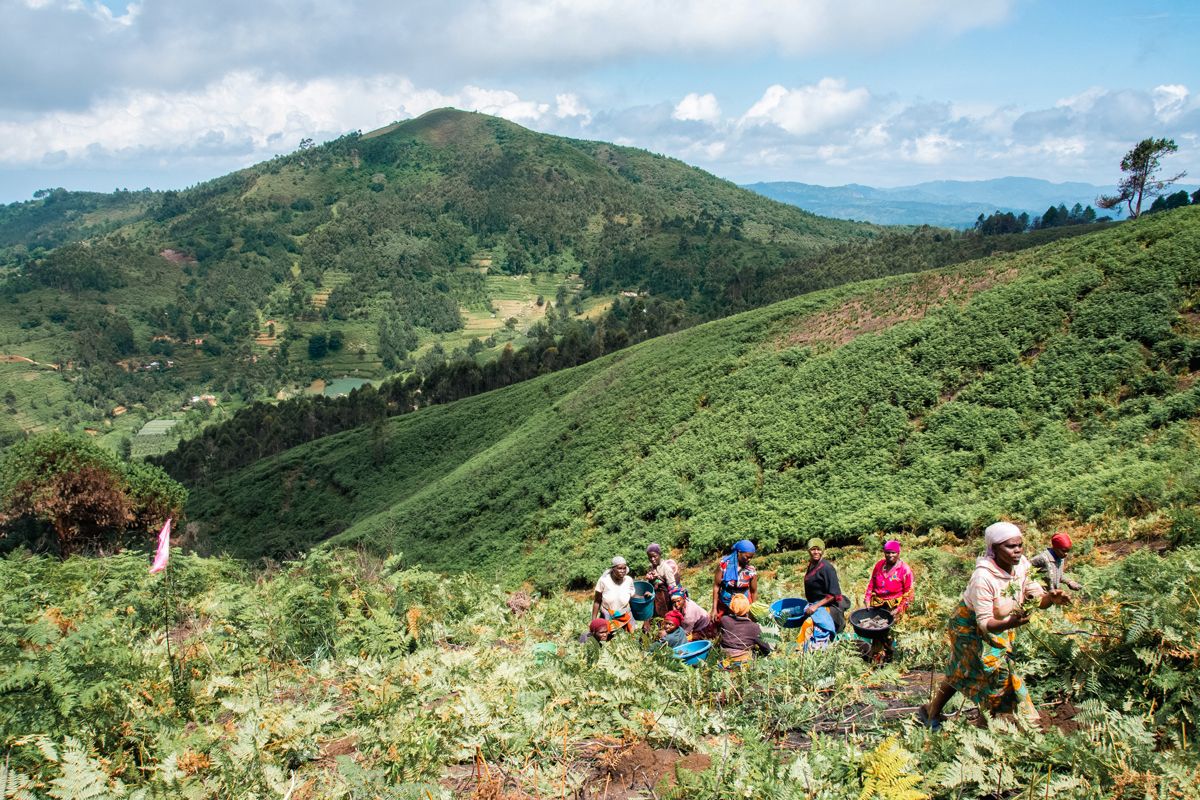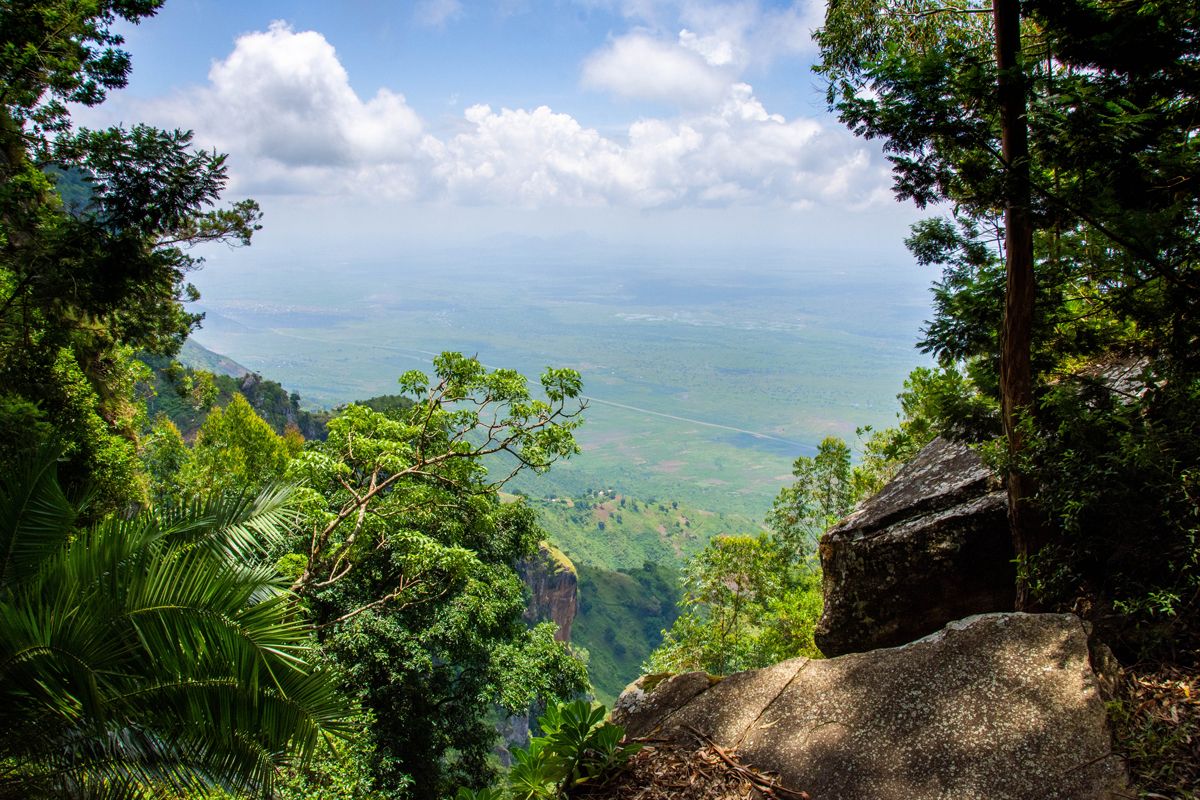Defined by the IUCN in 2009, the concept of Nature-based Solutions (NBS) is founded on the idea that natural processes, and not just technological ones, can make a significant contribution to tackling major contemporary challenges such as climate change and biodiversity erosion. Nature provides vital services to all living things, and in particular to humankind. It is therefore essential to preserve, restore and manage it sustainably to ensure our future.
Defined by the IUCN in 2009, the concept of Nature-based Solutions (NBS) is founded on the idea that natural processes, and not just technological ones, can make a significant contribution to tackling major contemporary challenges such as climate change and biodiversity erosion. Nature provides vital services to all living things, and in particular to humankind. It is therefore essential to preserve, restore and manage it sustainably to ensure our future.

What are Nature-based Solutions?
Nature-based Solutions are defined by IUCN (International Union for Conservation of Nature) as “actions to protect, sustainably manage and restore natural or modified ecosystems to directly address societal challenges in an effective and adaptive manner, while ensuring human well-being and producing benefits for biodiversity.”
This concept was formulated by IUCN at the Copenhagen Conference in 2009, when forests were proposed as a solution for mitigating climate change. It was at COP21 in 2015 that the place of Nature-based Solutions in climate action was recognized by States, notably via the Paris Agreement.
These are actions that aim to protect, restore and sustainably manage natural ecosystems - be they forests, rivers, wetlands or even bocage meadows - in a logic of mutual benefit, since these ecosystems generate benefits for humanity. Nature-based Solutions also bring benefits for biodiversity, by integrating this objective into the very design and implementation of these actions.

How are ecosystems and human societies interconnected?
A multitude of services to humanity
Ecosystems are multifunctional by nature. The variety of ecosystem functions they produce are not man-made, but the result of slow, patient work shaped by Nature over millions of years. Today, natural ecosystems make vital contributions to people's lives, such as the production of food, energy and raw materials, as well as a multitude of ecosystem services. For example, forests store carbon, regulate the water cycle, limit local heat peaks, reduce the risk of soil runoff and landslides, and meet vital human needs such as the production of timber and energy, food and medicinal products, and places of well-being and recreation.
Nature's services to human societies are not unlimited
The worldwide overexploitation of ecosystems leads to their degradation, and thus to their inability to provide resources in the long term. The Global Footprint Network's annual Earth Overshoot Day is a direct illustration of this idea. This date, which marks the day when humanity has consumed all the natural resources the Earth can produce in one year, is obtained by comparing mankind's ecological footprint (which measures the exploitation of the Earth's natural resources) with the planet's biocapacity (its capacity to replenish its reserves and absorb greenhouse gases). Still in surplus in 1961, with a quarter of its reserves unused, the Earth became in deficit in the early 1970s. This day was changed from October 10 in 1999 to August 1 in 2024.
In most regions of the world today, Nature has been significantly altered by multiple human factors, and the vast majority of indicators relating to ecosystems and biodiversity show a rapid decline. For example, the IPBES estimates that today :
- 75% of natural terrestrial environments are degraded;
- 66% of oceans have been altered;
- 85% of wetlands have disappeared;
- 5% of the world's animal and plant species are threatened.
Forests, which are home to 80% of the Earth's biodiversity and support 25% of the world's population, are in constant decline. On a global scale, forest area today represents around 68% of its estimated pre-industrial level. According to the FAO, 240 million hectares of forest were lost to deforestation in tropical zones between 1990 and 2015. In temperate zones, the effects of climate change are affecting forest health: 42% of tree species are now threatened with extinction in Europe, according to the IUCN. Forest animal biodiversity has fallen by 53% since 1970.
Ecosystem degradation also weakens populations
Ecosystems, biodiversity and climate are interdependent. Ecosystems and their biodiversity influence climate, helping to regulate temperature and precipitation. They are essential players in the carbon, water and nitrogen cycles. They help absorb some of the heat and greenhouse gases emitted by human activities. These feedbacks between climate and biodiversity are at the origin of the dynamic balance of the environment in which human societies have developed, and which is today affected by both climate and ecosystem changes. Alterations to ecosystems and the climate-biodiversity pair make human beings more vulnerable, with the loss of food sources, the deterioration of water quality, the development of new diseases and the exposure of societies to extreme climatic events (droughts, storms, etc.).
Strategies and actions to combat climate change must therefore not only drastically reduce greenhouse gas emissions, but also invest in protecting ecosystems. Healthy ecosystems not only help mitigate climate change, but also enable human societies to adapt to its consequences.

Nature-based solutions for today's societal challenges
Preserving nature is essential to ensure the future of human societies and businesses
According to the IUCN, the use of NbS would enable us to achieve current societal objectives such as :
- Reducing natural hazards
- Socio-economic development
- Food security
- Water and energy supply
- Health and well-being for all
- Adapting territories to climate change
- Mitigating the effects of climate change on populations (rising sea levels, fires, heatwaves...)
According to the IPBES, these natural solutions will account for 37% of the climate change mitigation measures needed by 2030 to achieve the goal of global warming below 2°C by 2100. But implementing NbS on the scale required to meet these societal challenges requires the involvement of all stakeholders, including private sector companies.
Forests: a key component of Nature-based Solutions
NbS value the services provided by ecosystems that have been preserved, restored or sustainably managed, and are based on various underlying concepts listed by the IUCN. Among these Nature-based Solutions is the restoration of forest landscapes. This process aims to mobilize and involve local communities in restoring the multifunctionality of forests, in order to sustainably meet human needs. This type of project can be implemented through a variety of actions involving the preservation, restoration and sustainable management of forests. All these actions enhance forest biodiversity, and increase carbon capture, which helps mitigate the risks of climate change:
- Preservation of existing forests in good ecological condition
- Restoration of degraded forests or creation of forest ecosystems
- Adoption of sustainable forest management practices
- Creation of protected areas (national or regional parks, nature reserves, etc.) to protect associated territories and preserve ecosystem services
- Reforestation and ecological restoration of degraded forest habitats using adapted and diverse species, giving priority to indigenous species;
- Creation of hedgerows and agroforestry systems to regulate climate and the water cycle, conserve soil and create biological corridors for flora and fauna;
- Exclusion of unsustainable practices such as monospecific plantations, clear-cutting that weakens soils and overexploitation of stands;
- Development of Assisted Natural Regeneration;
- Creation of islands of senescence, made up of ageing trees which, as they decompose, promote the fertility of forest soils, the main reservoir of biodiversity in the forest;
- Promoting wood products from sustainably managed forests.

Developing Nature-based Solutions with Reforest'Action
Reforest'Action offers Nature-based Solutions that enable companies to:
- Contribute to global carbon neutrality
- Develop regenerative agriculture within their value chains
- Support the restoration of forest ecosystems
Our mission: to regenerate terrestrial ecosystems on a large scale to meet global environmental challenges and support corporate climate and transformation strategies, drawing on our field experience, local communities, research and technology.
Today, our 1,650 forest and agroforestry projects in 45 countries are creating multiple impacts, based on the stability of ecosystems over time, to combat climate change, protect biodiversity and support local communities. Each project financed by Reforest'Action is thus at the heart of global climate action and Nature-based Solutions.
At the heart of our approach, monitoring the impact of our projects via our Research & Development team also enables us to optimize their results and deliver reliable and transparent data to investors, by means of key performance indicators, regarding the value generated by our Nature-based Solutions.
Drawing on the role of healthy ecosystems for human life and the well-being of all, Nature-based Solutions address both climate and biodiversity issues. It is crucial to encourage their development at all scales to meet the Sustainable Development Goals formulated by the UN, and to direct more funds towards restoration in order to act more rapidly and effectively in favor of the climate and biodiversity at the service of all Living Things. If you're interested in Nature-based Solutions, and forestry in particular, please contact us.